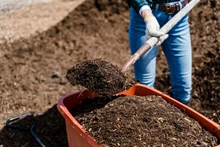
The applications asserted that local government and private firms or commercial premises discharged untreated sewage into the Yamuna in Mathura and polluted the river in Agra. In accordance with the tribunal's earlier orders, the state pollution control board (PCB) filed separate reports acknowledging pollution of the river Yamuna in Mathura and discharge of 131 million litres per day (MLD) of untreated sewage in it, as well as failure of the authorities to take necessary remedial action in Agra.
The bench, which also included judicial member Justice Sudhir Agarwal and expert members A Senthil Vel and Afroz Ahmad, noticed uncovered drains and untreated sewage flow into the river in Mathura, as well as "huge gaps and deficiencies in sewage management" in Agra. "Given that Mathura is a heritage city of great significance that is visited by a large number of people," the bench observed, "urgent measures are required, particularly by senior level officers, because huge funds have been allocated for the purpose with insufficient results on the ground."
According to the assessment, there were three untapped or partially tapped drains in Mathura, while two of the 13 drains in Vrindavan remained untapped, and there was no timetable for intercepting such drains. "Additionally, polluted water is discharged into rivers that are supposed to carry potable water." The channel for sewage or other untreated effluent should be isolated, and treated water utilized for non-contact uses like as agriculture, horticulture, and industry, as well as provision of such water to the Mathura refinery," the bench added.
In terms of sewage management in Agra, the judges found that only 58.25 MLD of the 286 MLD of sewage flowing into the sewers was tapped, and no information was provided regarding the wastewater in the sewage network. The installed capacity of nine sewage treatment plants (STPs) was 220.75 MLD, while the utilization capacity remained 175 MLD, according to the report. "Treated sewage is still being released into the Yamuna rather than being used...The bench stated, "There appears to be no urgency in providing STPs."
The green panel directed the state's chief secretary to convene a meeting with the officials involved in the two cities within a month to guarantee corrective measures in the two cities. The conference had two months to explore intercepting untapped sewers and diverting them to STPs for pollution in Mathura, according to the tribunal. It also had to consider that treated sewage from each STP is provided to the identified command area for irrigation/agriculture and that treated sewage only goes to the river during the non-utilization period, and that the performance of six STPs is evaluated and improved with the defined mode of disposal, according to the tribunal.
The tribunal further instructed that the meeting consider the chlorination procedure and the treatment of industrial effluents. In Agra, the tribunal requested that the current nine STPs be considered completely utilized and treated effluents be used for secondary purposes.
It also recommended that other issues be considered, such as intercepting partially tapped drains and diverting them to STPs, evaluating the performance of in-situ installations, and fortnightly monitoring of current waste water treatment with relation to consent conditions. The tribunal also ordered the Central Pollution Control Board (CPCB) to provide a report on chlorination, ferti-irrigation, STP performance, and in-situ project remediation in Agra. On August 23, the tribunal scheduled the subject for further proceedings, ordering the submission of action taken reports within four months.











